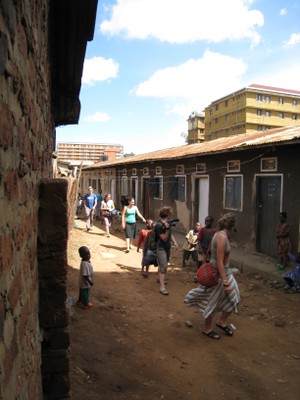Exploring options for research
This section outlines the first steps to beginning your Global Health research.
There is so much more to discover beyond the classroom. Doing research abroad will develop your research skills and broaden your horizons through hands on learning.
Students often wonder how they can get started in Global Health, especially since the field attracts people from so many different disciplines.
The first step is to explore what is going on in the field to truly narrowing your interests. This process can involve talking to your professors and also doing some independent research. Contact Greg Buchanan or Maggie Schmitt to find out what current Global Health staff are doing. Also there are some excellent Global Health blogs and journals that are worth looking at.
Wing Yu Tang, a recent grad writes about her experience: My first "putting myself out there" experience, was actually very simple—I just began talking to my professors during office hours! I took advantage of this more intimate setting to discuss with professors my interest, and found myself not only learning more about each professor's respected field, but also how it ties in with something I want to do. Granted, my first job at Northwestern, working as a NanoScience content developer summer of my freshman year, was a little unconventional in terms of getting started, but the idea is the same. I took the time to really get to know my professors and take classes (where I have room) with professors that I was very interested in /would like to work with.
Contacting professors or professionals who are experts in the field you want to work in, like Wing Yu Tang said, is an important step when you are exploring research opportunities. That being said, be confident and assertive when you do have the opportunity to meet with a professor. Nothing is worse than making a bad first impression when you contact a professor, looking as if you know nothing about their program, their objectives, and otherwise. And be sure you edit e-mails and CVs, no matter who you contact. Click here for details on how to write letters/emails to professors.
Once you have narrowed your interests, it is important to be aware of the deadlines of grants and fellowships.
If you would like to do research on campus before preparing for your own research abroad, Professor Larry Pinto has excellent advice about how to find a lab for doing research in the Life Sciences. His advice about approaching professors and learning about a lab environment apply to research in any field.


